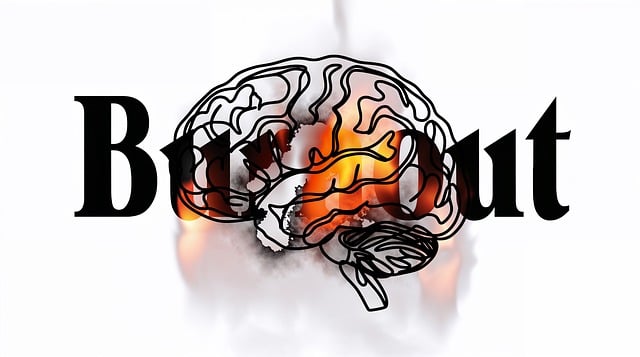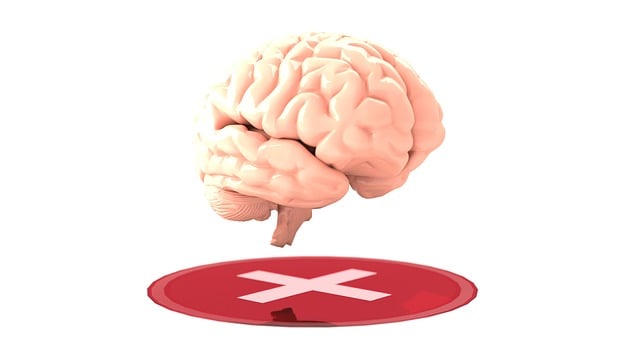Castle Rock Bipolar Disorder Therapy offers a comprehensive crisis intervention strategy for managing severe mood swings. Through mindfulness meditation, psychoeducation, and self-care routines, individuals gain tools to recognize early warning signs and proactively seek help. This approach prioritizes resilience building, emotional regulation, and effective communication strategies in safe, supportive environments. Post-crisis support includes sustained care, resources, and trauma support to foster recovery and long-term mental resilience.
“In times of crisis, effective intervention can be a lifeline. This comprehensive guide explores crucial strategies for navigating mental health emergencies, with a specific focus on bipolar disorder—a condition characterized by extreme mood swings. We delve into the Castle Rock approach, a therapeutic framework that empowers professionals and loved ones alike. Understanding bipolar’s impact is key, as we uncover signs to identify and address. Additionally, this article guides readers through communication tactics, post-crisis support, and recovery planning, emphasizing the importance of early intervention using evidence-based methods, including Castle Rock Bipolar Disorder Therapy.”
- Understanding Crisis Intervention: A Brief Overview
- Identifying Bipolar Disorder and Its Impact on Individuals
- Castle Rock Approach: Principles and Techniques
- Implementing Effective Communication Strategies During Crises
- Post-Crisis Support and Recovery Planning
Understanding Crisis Intervention: A Brief Overview

Crisis intervention is a critical component of mental health support, designed to provide immediate assistance during times of acute distress or crisis. It involves a structured and strategic approach to help individuals manage intense emotions, make sense of their experiences, and develop coping mechanisms to prevent further deterioration. The goal is to stabilize the person, assess their needs, and connect them with appropriate long-term support.
In the context of Castle Rock Bipolar Disorder Therapy, crisis intervention guidance plays a pivotal role in helping clients navigate severe episodes of mania or depression. This may include teaching individuals mindfulness meditation techniques, promoting self-care practices, and providing psychoeducation about bipolar disorder. Mental Health Education Programs Design can be tailored to equip individuals with the knowledge and skills to recognize early warning signs, manage symptoms, and seek help proactively, fostering resilience and a sense of empowerment.
Identifying Bipolar Disorder and Its Impact on Individuals

Bipolar disorder, a mental health condition characterized by extreme mood swings, can significantly impact an individual’s life. It is essential to recognize the signs and symptoms to provide effective support and guidance. Individuals dealing with bipolar disorder often experience episodes of mania or hypomania, alternating with periods of depression. These shifts in mood can lead to severe disruptions in daily functioning and relationships. For instance, during manic phases, individuals might exhibit heightened energy levels, rapid speech, and impulsive behaviors, while depressive episodes are marked by feelings of worthlessness, fatigue, and a loss of interest in activities once enjoyed.
In Castle Rock, Bipolar Disorder Therapy plays a pivotal role in managing this condition. Therapists skilled in recognizing the nuances of bipolar disorder can help individuals develop strategies for conflict resolution techniques to navigate emotional turmoil. Furthermore, promoting self-care routine development for better mental health is essential. This includes practices like regular exercise, mindfulness meditation, and maintaining structured daily routines to stabilize mood swings. By combining therapy with effective self-care, individuals can gain better control over their symptoms, enhance their overall well-being, and reduce the impact of bipolar disorder on their lives.
Castle Rock Approach: Principles and Techniques

The Castle Rock Approach is a therapeutic framework designed to provide effective crisis intervention and management strategies, particularly focusing on individuals with bipolar disorder. This approach emphasizes the importance of creating a safe and supportive environment for clients during times of acute distress. By leveraging techniques such as mindfulness meditation and compassion cultivation practices, mental health professionals can help patients regulate emotions, reduce impulsivity, and improve their overall coping abilities.
Central to the Castle Rock Approach is the belief that fostering resilience and self-compassion are key elements in managing crises. Risk management planning plays a crucial role here, enabling professionals to proactively identify potential triggers and develop strategies to mitigate risks. Through this approach, therapists aim to empower individuals to navigate challenging situations with greater composure, ultimately enhancing their ability to lead fulfilling lives despite the challenges posed by bipolar disorder.
Implementing Effective Communication Strategies During Crises

During crises, effective communication strategies are paramount to ensuring positive outcomes, particularly when addressing complex mental health issues like Castle Rock Bipolar Disorder Therapy. Mental health professionals must adapt their communication approaches to be empathetic, clear, and supportive. Active listening, for instance, allows individuals to express their feelings and fears freely while receiving unjudgmental attention. This not only builds trust but also enables professionals to better understand the severity and nature of the crisis.
Additionally, simple and direct language is crucial when managing intense situations. Using accessible, easy-to-understand terms helps avoid confusion and promotes a collaborative environment. Incorporating open-ended questions can facilitate dialogue and encourage individuals to share their perspectives. Meanwhile, integrating self-care practices and risk management planning, as per industry standards, ensures professionals are equipped to handle not only the immediate crisis but also their own stress management needs.
Post-Crisis Support and Recovery Planning

After a crisis, providing support and guiding individuals toward recovery is an essential step. Post-crisis support plays a pivotal role in helping people navigate the aftermath and rebuild their lives. This phase involves offering sustained care, ensuring access to necessary resources, and fostering a safe environment for healing. Many individuals, especially those managing conditions like bipolar disorder, may require ongoing therapy and counseling services, such as Castle Rock Bipolar Disorder Therapy, to process their experiences and develop coping mechanisms.
Effective recovery planning incorporates self-care practices, trauma support services, and stress management workshops. Encouraging individuals to prioritize their well-being through regular exercises, mindfulness techniques, or other therapeutic activities can aid in preventing future crises. Additionally, connecting them with relevant community resources and providing education on managing stressors and triggers empowers them to take proactive steps toward long-term mental health and resilience.
In conclusion, crisis intervention strategies play a pivotal role in supporting individuals struggling with bipolar disorder. By understanding the condition’s impact and employing techniques like the Castle Rock Approach, professionals can enhance communication and provide effective post-crisis care. Integrating these strategies ensures individuals receive the necessary support for their recovery journey, ultimately improving mental health outcomes. For those seeking guidance on bipolar disorder therapy, the Castle Rock methodology offers a promising path forward.











